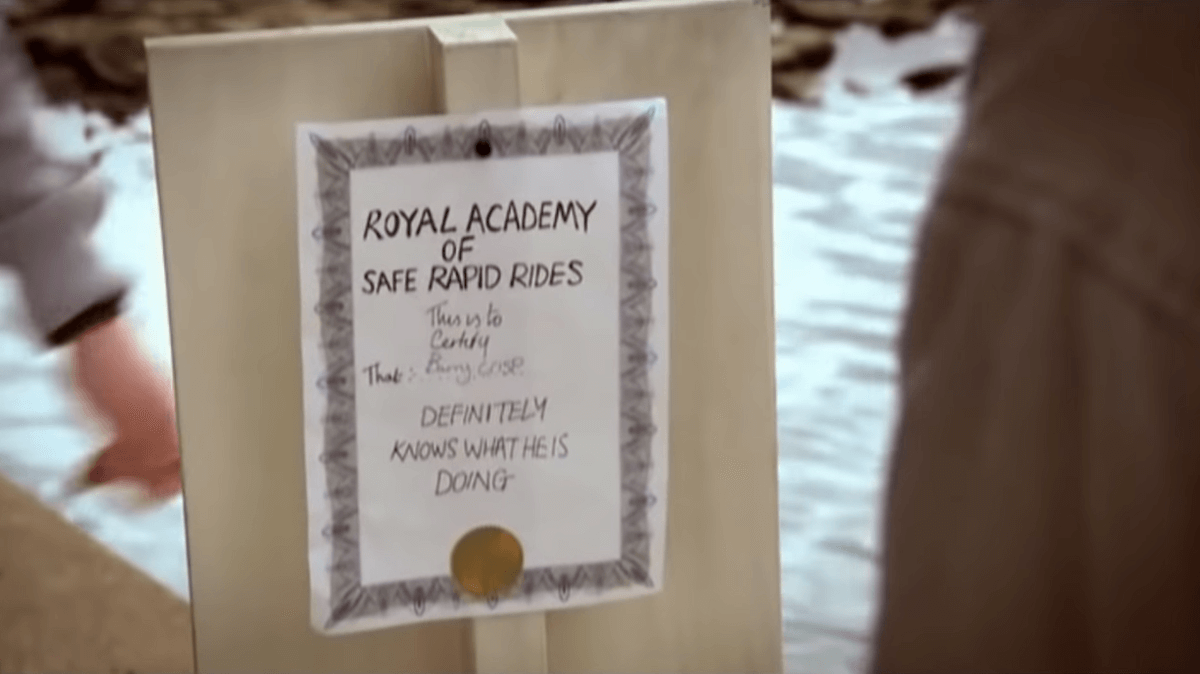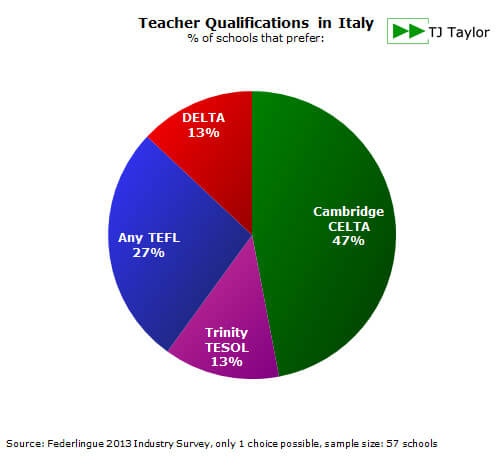In our opinion, yes! That is, if you want to pursue a rewarding professional career as an English teacher, in Italy or in any other country.

We Don’t Need No Education
The only schools that normally consider applicants with no teaching qualifications are either those in the less-than-reputable category, or franchises that have a particular in-house teaching method (training in which is often only a couple of hours or days, includes few transferable skills, and covers little if any pedagogy).
Not having a teaching qualification will be a major barrier to working with the better language schools, except for teachers who have at least two or three years’ teaching experience or equivalent.
On the other hand, many certificate ‘courses’ are simply covers for placement agencies for schools abroad, so it is important to choose a reputable certification course.

How to Choose
It’s important to note that a TEFL certificate is just the generic name for an EFL or ESL teaching qualification.
Pure elearning and distance courses are not normally considered an adequate teacher training course by many schools. However, if they also include on-site classroom observation and feedback they may be a valid option (and also one of the cheaper options).
“Online courses can sometimes be a valid option if they include on-site classroom observation and feedback.”
The same goes for DVD courses – some schools have been known to drop a couple of DVDs in the post so their newly ‘qualified’ teacher is ready to start on their first day.
In Italy the most recognised TEFL qualifications are the CELTA and the CertTESOL, which are accredited by the University of Cambridge ESOL and Trinity College London respectively. There are also various other good non-brand name qualifications available, but they tend to be less trusted or recognised by employers.

Where
In Italy you can study for a CELTA qualification in Rome, Milan, Naples, Verona, Palermo, Catania and Cagliari, while the CertTESOL is available in Rome and Vicenza.
In general terms, if there is at least 80-100 hours of effective training, with a minimum of 15-20 hours classroom practice, observation and feedback (and preferably also offering an advanced option such as a DELTA or DipTESOL as an indication of the level of their trainers), it is a valid and worthwhile course.
There is also some information about recruitment requirements and preferences, including certificates, in the FAQ on the job market for teachers.
Learn more:
- How to Find a Good School
- How and Where to Find a Teaching Job
- Independent or Freelance Teacher?
- Understanding Visas and Permits
- How to Calculate your Net Salary
- Guide to Employment Contracts
- Payslips and Common Italian Terms
- Return to main FAQs page
Are you interested in teaching English with us in Italy?
